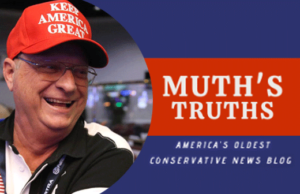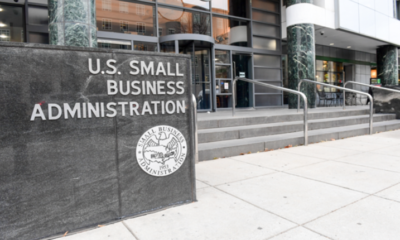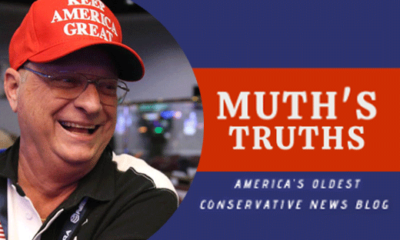
(Chuck Muth) – I was unaware that former President Jimmy Carter had his first election stolen. Thanks to Hans von Spakovsky of the Heritage Foundation for this reminder and timely history lesson…
* * * * *
With the passing of Rosalynn Carter, former President Jimmy Carter lost his lifetime partner, and my deepest sympathies go out to him and his family. The former first lady’s death, however, reminded me of something relevant to election integrity that many Americans may not realize: Organized voter fraud in Jimmy Carter’s first run for office stole his election.
The only reason Carter ended up in office when he did is because he claimed publicly that he had won and went to court to fight to overturn the election. Apparently, that’s considered a criminal act in Georgia today and can get you charged with violating the state’s racketeering law.
Perhaps because of his personal experience, Carter is one of the few leaders in the Democrat Party who has acknowledged that people should be seriously concerned about election fraud, and who took steps to try to address the problem.
One such step was the bipartisan recommendations by the 2005 Commission on Federal Election Reform, which Carter co-chaired with former Secretary of State James A. Baker III. Among the recommendations in the commission’s final report was a call for states to implement “a photo ID system for voters” that would provide “free IDs for those without driver’s licenses.”
Fortunately, Carter’s home state of Georgia and many other states implemented that recommendation, as well as others made by the election reform commission, including measures intended to produce “complete, accurate, and valid” voter registration lists, which the commission said must be a goal of state election officials.
So, what happened to Carter when he first ran for the Georgia state Senate in Democrats’ primary election of 1962? One of the best accounts was written by the late Jim Wooten, a highly respected former journalist and editor of the Atlanta Journal-Constitution who I had the privilege of knowing when I lived in Atlanta.
In his 1978 book “Dasher: The Roots and the Rising of Jimmy Carter,” Wooten recounts how Carter decided to challenge the local incumbent, described as “an entrenched Establishment figure.” Carter worked hard and campaigned throughout the Senate district. His prospects seemed high—until he arrived in Georgetown, a small town in Quitman County, on Election Day.
Carter saw “no voting booths in the courthouse and all voters were marking their ballots on a table in full view” of the “local legislator and dominant political boss,” Wooten writes. The political boss was “supervising” the election and telling voters who to vote for, even pulling ballots out of the ballot box to check them.
Carter’s attempt to get the Columbus, Georgia, newspaper to write a story about the situation proved unavailing. After Carter called the newspaper from a local cafe, an editor sent out a reporter who happened to be friends with the local political boss. Carter said the reporter “was not interested in writing any story critical of election procedures in Quitman County,” Wooten writes.
By the end of Election Day, Carter was ahead by 70 votes. To no one’s surprise, the results from Georgetown were the last to arrive. When they came in, Carter had lost by just a relative few votes.
A total of 443 ballots were in the box, Wooten writes, “and according to the names listed, 126 of them voted alphabetically!” Moreover, when the “ballots were unfolded, there were sometime four to eight of them folded together,” making it obvious that “the box had been stuffed.”
Carter and a lawyer went to Georgetown. When they began taking statements from local residents, they discovered that “what had happened that day had been going on on election days as long as most people could remember.”
The “local Democratic machinery laughed at [Carter’s] efforts to reverse the decision,” Wooten writes, because the election was over and there “was nothing he could do.”
But Carter and his lawyers doggedly continued their investigation, which resulted in their being followed by “local lieutenants of the organization” and targeted by “threatening phone calls.” They discovered that votes had been cast by individuals who “were dead, in prison, or had long ago moved away and voted in other communities.” Others in whose names ballots had been cast said they hadn’t actually voted.
But the newspapers characterized Carter “as a politically naïve sorehead and a poor loser,” while state Democrat Party officials were “aloof or downright hostile.” The “local judge and district attorney had strong ties in the county” and refused to do anything about the fraud, Wooten writes.
However, Carter wouldn’t give up even though the media, his own political party, and the local justice system were against him.
The future governor and president went to court with a lawyer recommended by his friend Griffin Bell (who went on to become the 72nd attorney general of the United States during the Carter administration). Carter’s lawyer, Charles Kirbo, managed to get a hearing before a judge outside the state Senate district in which Carter was running.
That judge declared Carter the winner because the election in Georgetown was “so thoroughly tainted by vote fraud that there was absolutely no way to determine what had been the voters’ original and genuine intent.” Accordingly, the judge said, the election would be decided by the votes cast elsewhere in the Senate district.
One would have thought that would be the end of the story. But a bizarre procedural quirk allowed the now-losing candidate to appeal the judge’s decision to Democrats’ local Executive Committee, which was controlled by the corrupt local political boss. He reinstated the incumbent.
Carter had to appeal to the state party chair, J.B. Fuqua, “a newcomer to state politics,” who supposedly was unavailable because of a hunting trip in Canada. Carter’s lawyer went all the way to Canada, hunted down Fuqua, presented Carter’s case, and convinced Fuqua to declare Carter the Democrat nominee the weekend before the general election.
The Georgetown political boss eventually was convicted of voter fraud, not for what he did in Carter’s election but for fraudulent acts in connection with a prior congressional election. Yet, this inveterate vote thief only drew a suspended sentence.
Once in office as a state senator, Carter spearheaded a comprehensive reform of the state’s election code that passed the Georgia Legislature. According to Wooten, Carter recalled that during the debate, “someone suggested as a compromise that no one be allowed to vote who had been dead more than three years.”
Keep in mind several points in this story. First, the importance of observers. If Carter had not seen what was happening on the ground in Georgetown, he would not have known his election had been stolen. Think about that the next time you hear opponents of election reforms argue that we need to restrict the access of observers.
Second, note the media’s lack of interest in covering the story, and how Carter was criticized for raising doubts about the outcome of the election. That lack of interest extended to local prosecutors and judges who had ties to the political powers that be. Does that sound familiar, over 60 years later?
Third, when the local political boss finally was convicted of voter fraud, he got a suspended sentence. That’s another problem that occurs too frequently even when election fraud cases are investigated and prosecuted. The light sentences given by judges for attempts to subvert our democratic process often just don’t fit the seriousness of the crimes.
Fourth, the theft going on was all within the same political party, something that happens all too often, as demonstrated by the reported cases in The Heritage Foundation’s Election Fraud Database. (The Daily Signal is Heritage’s news outlet.)
Fifth, Jimmy Carter’s election to the Georgia state Senate, which he initially lost by a few votes, once again illustrates what the U.S. Supreme Court said in 2008 in Crawford v. Marion County, when it upheld Indiana’s voter ID law. Fraud is especially troublesome, the high court ruled, when “it could affect the outcome of a close election”—and we have close elections all the time in this country.
Jimmy Carter’s experience also brings up one final question, one that reminds me of an old proverb: “Mighty oaks from little acorns grow.”
If Carter had not had—as Wooten aptly describes it—the “stubborn, dogged determination, fueled by his seething anger,” to fight to overturn his stolen election, and hadn’t been elected to the Georgia state Senate, the first step in his political career, would he ever have been elected president?
We’ll never know.
* * * * * *
7 Worst Habits of Highly Unelectable People
- Picking the wrong race
- Picking the wrong district
- Picking the wrong issues
- Picking the wrong time
- Picking the wrong consultants
- Picking unnecessary fights with the media
- Picking door-knocking over fundraising
FAMOUS LAST WORDS
“Allowing someone to speak is not the same as compelling you to listen.” – Seth Dillon of the Babylon Bee
Mr. Muth is president of Citizen Outreach, publisher of Nevada News & Views, and founder of CampaignDoctor.com. You can sign up for his conservative, Nevada-focused e-newsletter at MuthsTruths.com. His views are his own.





Facebook
Twitter
Pinterest
RSS